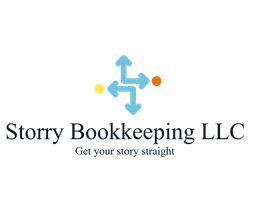I know, I hear it all the time too – AI is getting so good, a trained monkey can do the books. Maybe, someday. But we’re not there yet by a long shot. Off the top of my head, here’s a short list of some common issues I’ve seen from smart, hard-working, business owners trying to do it themselves.
In your bookkeeping software, do you know how to set up and customize your Chart of Accounts:
- creating enough sufficiently detailed categories to provide you with meaningful reports, but not more;
- mapping each category to the correct Balance Sheet or Income Statement account;
- adding the accepted accounting numbering system to number your categories so they will appear in a logical order on your financial statements (rather than just alphabetically, which is what happens if you don’t number them).
Do you reconcile your bank and credit card statements each and every month?
- If a bank account does not reconcile, do you know how to find and correct the problem?
If you use QuickBooks Online (QBO) and create invoices in QBO, when a deposit comes through the bank feed, do you “Match” the payment to the invoice before adding deposit to the books, or do you just click to “Add” the payment? If you do the latter, your invoice will still show as unpaid, and your Accounts Receivable (and therefore your Balance Sheet) will be off.
If you have a loan for a fixed asset:
- is the loan even in your books?
- do you correctly book the principal payment to the liability and only the interest as an expense? (PRO TIP: The whole loan payment is not an expense, so don’t make that rookie mistake.)
- Speaking of said fixed asset, do you know how to book depreciation it if it’s over $2500?
If you accidentally use a personal card to pay business expenses, do you know how to create a Journal Entry to get that business expense into your books?
- And speaking of Journal Entries, do you know which accounts are increased by debiting them, and which are increased with a credit? (The answer is Assets, Expenses, and Cost of Goods Sold are increased with a debit. Liabilities, Equity, and Revenue/Income are increased with a credit. Don’t waste your time trying to figure out why – I already wasted enough time on that for all of us, and the bottom line is you just have to memorize it.)
If you have employees, are the employee wage withholding amounts correctly booked as liabilities and the employer payroll taxes booked as expenses?
If you use contractors, do you have completed W-9s from all of them? (PRO TIP #2: Don’t pay a new contractor until you get their completed W-9. If it’s too late for that, just get it now!)
- Have you updated your Vendor records with the information from all those W-9s? This needs to be done so you’ll be able to determine which ones need a 1099 each January, and so they can be properly sent. (PRO TIP #3: Attached a scanned copy of the W-9 right to the vendor record in QBO.)
- Do you know what to look for on those W-9s so you can tell if the vendor/contractor should be tracked for a 1099 or not? (PRO TIP #4: If they are a corporation, or are an LLC taxed as an S-Corp or a C-Corp, they will not need to be sent a 1099, no matter how much you pay them in a year. PRO TIP #5: Attorneys are an exception to Pro Tip #4, and they need to be sent a 1099 regardless of their business entity.)
- When January rolls around, do you know how to identify the vendors that need to be sent a 1099? The programming in QBO can help with this, if you use the Vendor reports and the “Prepare 1099s” functionality (e.g. weeding out vendors who were paid less than $600 in the tax year, and weeding out payments made to vendors by credit card, which are not included on 1099s). But you need to manually select all the possible categories you used for your vendors in order to get a correct list.
- Do you know how to submit the 1099 information to the IRS and send 1099s to the vendors?
Do you look at your Balance Sheet, Income Statement, and Statement of Cash Flows on a regular basis, do you know how they relate to each other, and do they tell you anything? Can you read the story those numbers are trying to relate?
There are many more, and more complicated, issues I could regale you with, but this is probably enough to make the point that there is value in using a trained professional bookkeeper who gets things right – and if something is wrong, can fix it correctly.
Additionally, over time, your bookkeeper will know your business better and better, and will be in a position to spot trends or anomalies that you might miss, given that you are looking at the business from different vantage points.
As self-serving as all this sounds, I wanted to add my voice to the small chorus of those defending the profession, which I, am convinced, makes all the difference for many small businesses in whether they succeed or fail. It’s that big a deal.
Photo credit: Markus Binzegger


Recent Comments